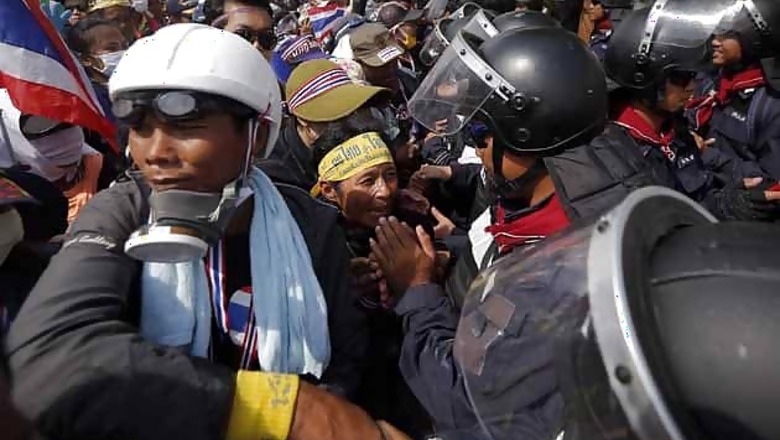
views
Bangkok: Thailand's capital was under a state of emergency on Wednesday after the government moved to tighten security as protesters trying to oust Prime Minister Yingluck Shinawatra threatened to disrupt an election she has called for early next month.
Bangkok was calm and early commuters travelled to work as normal. There were no troops on the streets, as has been the case throughout the crisis since November, and even the police presence was light. No overnight curfew was enforced.
Announcing the 60-day emergency late on Tuesday, ministers said they had no plans to clear the camps that protesters have set up at seven major road junctions in the city.
Rather, they said they wanted to prevent an escalation of violence after deaths and injuries caused by grenade attacks on demonstrators over the weekend.
The protests are the latest episode in an eight-year political conflict that pits Bangkok's middle class and royalist establishment against the mainly poorer supporters of Yingluck and her brother, ex-premier Thaksin Shinawatra, who was toppled by the military in 2006.
The decree, which covers Bangkok and surrounding provinces, allows security agencies to impose curfews, detain suspects without charge, censor media, ban political gatherings of more than five people and declare areas off-limits.
Yingluck has called an election for February 2, which she will almost certainly win and which the opposition plans to boycott.
The Election Commission said it would seek a ruling from the Constitutional Court on Wednesday on whether it can delay the vote. It is worried about violence on polling day and says the protests have prevented some candidates from registering, meaning there will not be a quorum to open parliament.
Protest leader Suthep Thaugsuban has rejected the election outright. He accuses Thaksin of corruption and nepotism and wants to change the electoral system to eradicate the influence of Thaksin, who lives in exile in Dubai to avoid a jail term handed down in 2008 for abuse of power.
Nine people have died since November in the worst political violence in Thailand since 2010.
Suthep, at that time a deputy prime minister, sent in troops to end mass protests by pro-Thaksin supporters. More than 90 people died in the 2010 unrest.
The crisis has hurt tourism and business confidence. As a result, the central bank could cut interest rates when it meets on Wednesday to boost the economy.
Adding to Yingluck's problems, farmers, who are part of her core constituency, have threatened to join the protest if they do not get paid for the rice they have sold to the government under a controversial intervention scheme.
Her government guaranteed them an above-market price for their rice but the scheme has run into funding difficulties.
The government has sold a bond and is seeking loans to tide it over, but the Election Commission, which has to approve such action by the caretaker government, has declined to give its support.




















Comments
0 comment